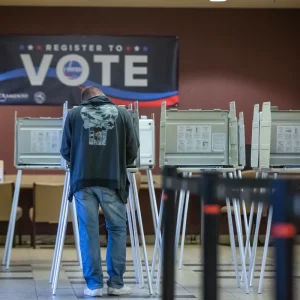The debate over legalizing or banning fantasy sports
In 2012, DraftKings and Fanduel were part of an industry in its mere infancy. Today, their name recognition has been well developed due to some $200 million poured into advertising during the 2015 NFL season. Advertisements bearing their names inundate the sound waves, dominate television screens, and are plastered all over the stadiums themselves, all appealing to the human desire to accumulate money. Currently, the number of fantasy players continues to grow rapidly. The proliferation of discussions surrounding the industry, albeit some about the dark and controversial aspects of fantasy sports, suggest the growth and impact the industry has had thus far, and will likely to continue to enjoy down the road. It has already been projected that the industry will grow to earn $31 billion in entry fees by 2020.
That is, if they are allowed to stay.
The Debate Over Legalization
Fantasy sports allow players to “draft” teams consisting of professional athletes, compete against other teams, and reap profits based on how well their chosen athletes deliver in real-life. The practice of forming leagues and betting on them has been around for decades; what is different now is that online platforms such as Draftkings and Fanduel make it more accessible and appealing than ever, allowing users to participate in daily or weekly contests instead of devoting their time season-long. But what are fantasy sports: games of skill or games of chance, better known as “gambling”? For industry representatives, they insist that the range of ability among players provide evidence that fantasy sports is a game of skill and defend it as “an entertainment product” as Matt King, FanDuel’s chief financial officer puts it. Skeptics point to the nature of fantasy sports, which involves risking money on some uncertain outcome, the definition of gambling.
Federal law bans online gambling, but the 2006 Unlawful Internet Gambling Enforcement Act specifically exempts fantasy sports because Congress considered them games of skill. However, in the current climate, states have taken it upon themselves to allow or ban fantasy sports in compliance with their gambling laws. Several state attorney generals have said in recent months that daily fantasy sports violate state gambling laws, including in Texas, Washington and Illinois. The most serious challenge to the industry is in New York, where Attorney General Eric Schneiderman has requested a judge to completely ban DraftKings and FanDuel from the state.
Nevertheless, some states have taken the opposite stance. In Massachusetts, Attorney General Maura Healey is finalizing consumer protection regulations which would take steps such as require companies to prohibit players under 21 in age, restrict their advertising practices and outlaw contests based on college sporting events.
On California’s Turf
In California, Attorney General Kamala Harris has yet to assert a position. This has prompted fantasy sports leagues and their backers, including major broadcasters and cable companies, to lobby the California state legislature to protect themselves and their clientele.
On January 27, 2016, Assembly Bill 1437 authored by Assemblyman Adam Gray (D-Merced) passed in the Assembly and was sent to the Senate for consideration. Characterized as “consumer protection bill” by Gray, the bill allows daily fantasy sports websites to operate in California if they get a state license from the Department of Justice after undergoing background checks, and if they pay an annual regulatory fee. Owners of the Los Angeles Lakers, Clippers and the San Francisco 49ers and more had urged lawmakers to support the measure, with Clippers Vice President Thuresson stressing the importance of fantasy sports in helping foster deeper engagement for their fans.
The Bill passed 17-1 in the Assembly Governmental Organization Committee and sailed through the full chamber with a 62-1 vote, with the lone vote cast by Assemblyman Marc Levine (D-San Rafael), who argued that the activity constituted a form of gambling, pointing to the repeated usage of the word “gambling” in the text of the bill, and calling attention to the fact that the bill had been heard by the committee whose jurisdiction includes games of chance. He claimed that legislators had no constitutional authority to act on the issue without putting it issue before voters first.
His colleagues view the issue differently. Assemblyman Scott Wilk (R-Santa Clarita) said, “Whether it ultimately is legal or illegal, I think that’s for others to decide. I think it’s for us to do what we can do to protect our constituents.”
For now, fantasy sports are here to stay in California, until its legality is determined by the Attorney General’s office. Perhaps instead of deeming the industry, one with a huge existing following, illegal, other state legislatures can follow in California’s lead in regulating the leagues. Protections for consumers against untrustworthy sites could include requiring companies to use sophisticated technology to block minors and problem gamblers, to pay fees that can be used for oversight and enforcement, and to guard consumers against insiders competing unfairly for jackpots, a practice unrestricted by both FanDuel and DraftKings in 2015. None of those safeguards are assured online today, giving way to rampant preying on players.
Games of Risk Is A Go
The Darwinism within fantasy is very real, demonstrated by what is called a shark-fish model. Casual players, labeled “fish,” constitute around 80% of fantasy sports players who report losing money, losses which feed into the mouths of “sharks,” the more advanced players. The fish lose $1,100 on average entry feeds of $3,600, while the top 11 players risk an average of $2 million in entry fees to reap $135,000 worth of profits.
The secret to all this money making is not watching sports tournaments 24/7, but possessing a good understanding of data analysis. The greater the ability to build proper algorithms that analyze athletes’ performance statistics, the likelier it steers a player toward the coveted “shark” status and away from the lowly ranks of “fish”.
The financial risk is grave with this sort of gameplay. For current or recovering gambling addicts, daily fantasy sports puts them at a heightened risk for devastating losses. Keith Whyte, executive director on the National Council on Problem Gambling, likens fantasy sports with investing on the continuum of gambling. “The closer you get to daily fantasy, the more it starts to resemble day trading and high-risk trading.” For Whyte, one of biggest problems is that players think fantasy is a “game of skill,” overestimate their abilities, and believe that they are always only one big win away from getting the money back if they have a bad run of luck. The vicious cycle of spending and losing they are engulfed in dangerously resembles that of gambling.
College students are a demographic particularly at risk. Dr. Kimberly Young, founder of The Center for Internet Addiction, author, psychologist, and university professor, fears the consequences of the addictive properties she observes from the “instant reinforcement and instant gratification” on college students, many of whom are on unstable financial grounds and already owe debt from student loans. Indeed, student loans constitute one big source of income to the fantasy industry.
Global Fantasy?
Regardless of whether California and other undecided states ends up legalizing fantasy sports or not, the industry has already seen the ramifications of the challenges to its legality. Twenty-First Century Fox Inc. has marked down the value of its $160 million investment in DraftKings Inc by about 60%, payment processor Vantiv Inc., which helps companies take in money from customers and pay out prizes million, has stated its intention to discontinue serving the industry at the end of February, both Citigroup and Bank of America, have blocked their customers from paying for daily fantasy contests in New York.
Nevertheless, fantasy sports companies have a backup plan should they be banished from multiple states, which makes it inconvenient to do business in a country with complex and overlapping federal and state restrictions. For example, DraftKings, after intense legal scrutiny in the U.S., announced its plan to expand overseas, beginning with a February 2016 launch in the United Kingdom, where online betting on sports, among many other forms of gambling, are permitted.
DraftKings international chief Jeffrey Haas acknowledged that this move would not only build a new player base and generate new streams of revenues, but also utilize the UK as a springboard for expansions to offer contests in other countries, branching out into Europe, Asia, Australia, and capitalizing on the passion for the world’s most popular sport, soccer, and possibly other beloved contests of rugby and cricket.
The potential of the fantasy sports industry is huge. Various forms of sports have always been major pastimes in every country in the world; for fans, sports betting in this form is accessible and adds intimacy and fun to their already fiery passion. The following that fantasy sports already enjoys is extensive and loyal, and many more sports fans across the globe would surely be similarly captivated. Even if Fanduel, Draftkings and other sites do not win in the United States, they will inevitably expand their appeal to other global markets and capitalize on their successes there. Perhaps then, the states will see that the industry is one that can bring revenue into their governments if properly legislated and realize that it should be allowed to stay.
Featured image source: NBC News




Be First to Comment